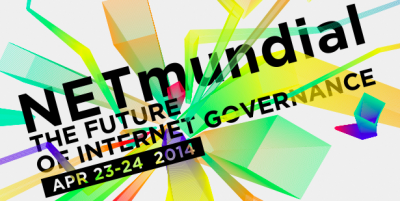For my final project, I wanted to do something that had a lot of personal meaning for me, something that I could really sink my teeth into. We've been talking a lot in the past few weeks about fair use and what constitutes a culture that is fair and just, copyright laws and creative commons and all sorts of things. As an art major and something of a music fanatic, these issues are very near and dear to my heart, and so I decided to center my creative works around this theme of copyright legislation and fair vs. free culture.
The basis of my project - that is, the underlying theme - is that copyright law, as it is now, is outdated and no longer appropriate for our society, much as Gaylor argued in his
Remix Manifesto. To this end, my project was to take old WWII posters and edit them in such as way as to reflect the "war on piracy" that much of American society is engulfed in nowadays. In my poster series, instead of the familiar enemy being the Nazi, the enemy of the American people is the Pirate, the hacker who steals music content "from artists," the unsuspecting youth who downloads a song from YouTube, the mother who uploads a video of her child with a copyrighted song playing far off in the distance (a la Lessig's
Remix). In one iconic poster, the familiar face of Rosie the Riveter, iPod in hand, calls upon her fellow Americans to put a stop to music piracy, together!
As mentioned before, this project draws heavily from the arguments raised in
RIP: A Remix Manifesto, and the points that Gaylor raised in the manifesto itself. At the heart of my project is point #2 on Gaylor's manifesto "The Past always tries to control the Future." I consider this fact to be a travesty, especially in the context of copyright laws and fair culture. Written as far back as the 1700's in America, copyright law was created in order to deal with printed works, before anyone even knew what the word "digital" meant. In today's world, the world of computers and technology galore, these legislations are becoming increasingly outdated in their treatment of digital content management and sharing, an issue hitting the homes of more and more American citizens by the day.
Lawrence Lessig, founder of Creative Commons, a movement taking a very positive step forward to remedy our broken copyright system, outlines the increasing dangers of this "war against piracy" in his book
Remix. In his introduction, he discusses the plight of Stephanie Lenz, a mother who uploaded a video of her toddler dancing to a tune by Prince, and the shocking overreaction it caused in the Universal Music Group. By uploading a video with a barely audible song in the background, Universal deemed Lenz in blatant violation of copyright laws, threatening her with fines up to $150,000 if she did not take down her video of her 18-month-old son dancing. Lenz is one of the types of "collateral damage" that Lessig talks about in his book, damage accrued by these huge corporations' war on "piracy," and I whole-heartedly agree. Putting aside that recent research has shown that music piracy actually
helps music sales, contrary to what big corporations want you to believe (don't believe me? check out some of these links:
this one,
this one,
and even this one), we have to, as Lessig argues, think of the collateral damage to our children and even ourselves. The harsh reality of today is that a mother can't even post a video to YouTube of her child without worrying about record companies coming down on her like a ton of bricks. The state of modern copyright law and corporations' vehement protection of what is "theirs" is almost reminiscent of Reagan's Red Scare, where the public jumped at even the mention of Communists.
What I hope to prove with these posters is that, as Gaylor and, to an extent, Lessig argue, these laws and regulations are outdated and potentially harmful to our society. The Entertainment Industry's campaign against piracy has become akin to the world's campaign against Hitler and his Nazi regime, but is music piracy really on the same scale as the mass execution of million of people? Is it really worth growing up and living in a state of fear that, at any time, the government could swing their hammer of "justice" and land you with hundreds of thousands of dollars in fines for something as harmless as a 30 second video of someone dancing? According to the record industry, yes, and they are hell bent on defending their rights (to music that they didn't even create, I might add) to the bitter end. But I say nay. These laws are too old, too outdated to be relevant in the digital world, and their rules and regulations allow big corporations more power than they deserve to protect content from a threat that doesn't truly exist. Lessig created Creative Commons, Gaylor argued against this regime of fear in his documentary, what will you do?





